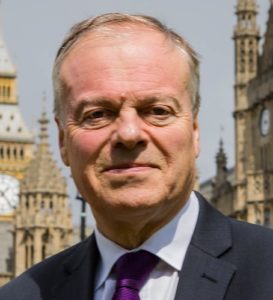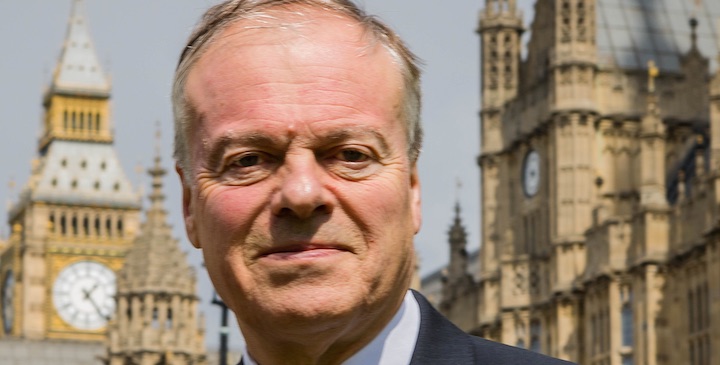Clive Betts, chair of the Levelling Up, Housing and Communities Committee, talks to Mike Thatcher about lack of progress on levelling up, pork-barrel politics and why local government finance cannot be reformed until social care funding is sorted.
 Is levelling up yesterday’s priority? With the cost-of-living crisis dominating the political agenda and the main levelling up evangelists – Boris Johnson and Michael Gove – going or gone, there’s certainly a feeling of old news about the phrase.
Is levelling up yesterday’s priority? With the cost-of-living crisis dominating the political agenda and the main levelling up evangelists – Boris Johnson and Michael Gove – going or gone, there’s certainly a feeling of old news about the phrase.
Johnson described levelling up as the “defining mission” of his government, while Gove, as levelling up secretary, set out in the levelling up white paper how undervalued communities could “take back control”.
But levelling up has been discussed rarely during the Conservative leadership hustings, and it has not been a differentiator between Liz Truss and Rishi Sunak. If Truss does become the next prime minister, as the polls suggest, it is hard to see levelling up being the focus of her speech outside No 10 as it was for Johnson three years ago.
So will levelling up go the way of David Cameron’s Big Society – a slogan that never really had any tangible impact and was then quietly forgotten?
Who better to ask than Clive Betts, the chair of the parliamentary Levelling Up, Housing and Communities Committee? Betts has chaired the committee in its different guises since 2010, and has conducted inquiries most recently into the Levelling Up and Regeneration Bill, long-term funding of adult social care, the regulation of social housing and the planning system.
The veteran Labour MP will be discussing levelling up at the Room151 Local Authority Treasurers Investment Forum and FDs’ Summit on 13 September. He tells Room151 that the next PM might not see levelling up as their top priority, but it would be hard for the government to abandon the philosophy altogether.
There are far too many disparate pots of money that councils have to bid for and no linking up of those, no overall strategy and, essentially, no fundamental change in overall government departmental budgets towards deprived areas.
Has levelling up lost its lustre?
“The cost-of-living crisis may politically have to be top of the new PM’s in-tray. But they still have to address their red-wall seats and I don’t think they will let levelling up just go,” he says.
Betts expresses disappointment at the lack of progress on the levelling up agenda. He says that Gove succeeded in raising the profile of the concept, and helped it to be seen as a key challenge for the country. But he believes that there is no evidence to demonstrate that it has made a significant difference to the experience of those in the more deprived parts of the UK.
“There are far too many disparate pots of money that councils have to bid for and no linking up of those, no overall strategy and, essentially, no fundamental change in overall government departmental budgets towards the deprived areas.”
Both Gove and Neil O’Brien, the former levelling up minister, talked about moving away from what became known in local government as the “tyranny of competitive funding” to a more formula-based approach. O’Brien told Betts’ committee that what was needed was a “balanced diet” of funding.
Betts says now that ministers talked the talk, but there has been little sign of any change of emphasis. When asked if there is political manipulation of the funding for both the levelling up and towns funds, he says “it looks like it”.
There doesn’t seem to be any recognition that if there is spare money at the Treasury, local government, and particularly social care, ought to be at the top of the list of spending rather than corporation tax cuts.
Political manipulation
Opponents of levelling up have seen it as a move to US-style “pork-barrel politics”. It is tempting to agree, given that 40 out of 45 of the towns receiving funding from the towns fund had a Conservative MP. And, of course, Sunak openly admitted, in a campaign speech, that as chancellor he had started to change the formulas so that towns like Tunbridge Wells received funding rather than “deprived urban areas”.
Betts points out that Sunak’s leafy Richmond constituency was favoured over towns like Barnsley when it came to bids for the levelling up fund. And he admits to being depressed by the level of debate between Truss and Sunak.
“Local government has been treated worse than any other part of the public sector since 2010. It has had bigger reductions in its spending and there doesn’t seem to be any recognition that if there is spare money around at the Treasury, local government, and particularly priorities like social care, ought to be at the top of the list of spending rather than corporation tax cuts.”
Both Sunak and Truss have signed up to the four pledges put forward by the Northern Research Group of Conservative MPs. The four pledges are: a minister for the north; Voxbridge (two vocational institutions in the north of England); a right to devolution for all areas of the UK; and a levelling up formula to ensure that “forgotten areas” are no longer left behind.
They have got to find a way of getting money to social care on a long-term basis with a degree of certainty. Until you sort social care funding out you can’t sort local government finance out.
Spending commitments on care
But Betts says he wants more than pledges. What is really missing are spending commitments, and particularly an appreciation of the urgent need for more social care funding.
“You are only going to get levelling up if you address the fundamental inequalities of government spending currently. Until you get core departmental budgets redirected, you won’t get levelling up.
“They have got to find a way of getting money to social care on a long-term basis with a degree of certainty. When we did our inquiry, it was said over and over to us by both Conservative leaders in local government and Labour leaders, until you sort social care funding out you can’t sort local government finance out.”
Social care is vital, he says, but the focus on care means that other local government services – libraries, parks, buses, street cleaning and environmental health – have had to face cuts of up to 50%.
“There is a real danger that many members of the public who don’t receive social care, and their families don’t, which is most of the public, are paying more and more council tax every year for less and less service. That is a real challenge to local democracy and to people’s willingness to support it.”
So what is the solution to that? “Sorting out social care funding,” he says.
Clive Betts will be speaking at the Room151 Local Authority Treasurers Investment Forum and FDs’ Summit on 13 September in central London.
—————
FREE weekly newsletters
Subscribe to Room151 Newsletters
Room151 LinkedIn Community
Join here
Monthly Online Treasury Briefing
Sign up here with a .gov.uk email address
Room151 Webinars
Visit the Room151 channel














